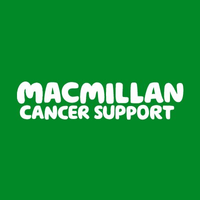Macmillan
We helped Macmillan grow into a more public role, as an enabler of cancer support. With an accessible new brand – and fresh confidence – fundraising increased by £26 million within two years.
Cancer used to be a word that made people very uncomfortable. It was discussed largely behind closed doors, while relief organisations like Macmillan used institutional settings – surgeries and hospitals – to reach out to patients.
Macmillan were best-known for their nurses and the end-of-life care they provided. Yet this valuable role came with a harmful side-effect: a public perception of the nurses as 'angels of death'.
In keeping with the sector at this time, Macmillan were institutional in their behaviour. And their communications felt institutional, which gave limited scope for tackling the broader impact of cancer.
But the landscape in the UK was changing, as relationships between charities and their supporters took on more of a two-way, mutually-beneficial nature. It was also becoming clear that people living with cancer could benefit from a new kind of support: less clinical in the hospital, more social and practical in the community. These factors combined to put Macmillan on the cusp of a new and far bigger role in supporting those affected by cancer.
Into the light
Since cancer affects all of us, we made the case that we all need to play a part in the solution. The significance of this was huge: Macmillan shouldn't try to be the final word in cancer care – they needed to help people help each other.
We helped to define this new role, changing their name from the more limited and misleading 'cancer relief' to the broad-based 'cancer support'. Where they had previously – and mistakenly – been perceived as offering help only to cancer patients, their new role allowed them be an everyday source of support for anyone affected by cancer, and a force for change in cancer care.
If Macmillan were to become truly 'everyday', they had to come out of the surgeries and hospitals and find a place within our daily lives and routines. They needed an effective presence that would work – in schools, workplaces, on the high street and online – to inspire everyone to play a part in supporting people living with cancer. It needed to feel everyday and personal, rather than institutional and authoritative.
What we created was a personality and radical new expression that would work much more broadly and – importantly – feel like it could've been made by anyone.
Getting into shape
Macmillan faced a big cultural challenge, in beginning to enable those living with cancer to provide support for each other. We supported them as they began to build the capabilities they would need for their new role. We sat on a panel to select the right agency partners. We helped them lobby and change perceptions more confidently, to get people talking about cancer. We got them to open up their website, allowing people to interact and help each other. And we created an online sharing tool, which let fundraisers create their own branded materials (for example, if they were hosting their own coffee morning). All with the aim of creating a movement, of people doing it for themselves.
We then coached Macmillan, at all levels up to the CEO, to own and live the change. Their in-house design team spent several weeks stationed at our offices, while our Creative Director held a fortnightly session to help solve any design issues that they encountered. We also developed a set of principles for how a Macmillan experience should feel, which guided and filtered the ongoing work.
A blueprint for partnership
We helped get Macmillan thinking about partnerships with a proposal that outlined the huge potential of co-branded initiatives. They have since begun a substantial partnership with health retailer Boots, using their stores to deliver cancer services on every high street in the UK – another big leap in bringing Macmillan out of hospitals and into everyday life.
Within two years of the rebrand Macmillan's fundraising had defied the recession, increasing by £26 million – a 6% year-on-year growth. They were helping far more people, in more places, than ever before: website visitors had doubled; callers to the Macmillan Support Line increased by 35%; and 50% more people had found the benefits they were entitled to. While this wasn't all the direct result of the rebrand, the work had undoubtedly helped to provide the platform for a more confident and assertive organisation.
The transformation was so successful that recruiting the right kind of people became easier: one in two people interviewed for a job at Macmillan cited the brand as a reason they wanted to work there. But our biggest impact according to Macmillan, was that they were now a self-assured and dynamic organisation. They knew where they were going and what they needed to be doing.

